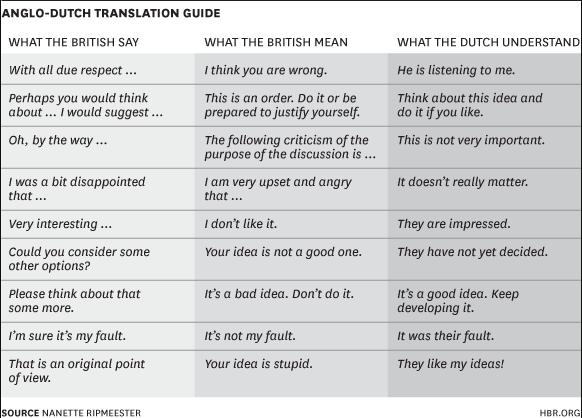
The value of Cultural Intelligence (CQ)
Lately, we have been reading a lot about Cultural Intelligence (CQ). The term itself isn’t new, but it has been making headlines over the past months. So, we were wondering why CQ has become a buzzword, which elements are at the heart of this ‘new’ form of intelligence, and how it helps you move forward.
To start with, we live in a world beyond borders. Our digital landscape ensures a connected world in which global collaboration is on the rise. Furthermore, we have been traveling more often, digital techniques have increased the ease of doing business abroad, and many companies have international expansion on their agenda; for instance, to enter a more attractive business environment or to find new markets for their products. A connected world provides many opportunities; however, pitfalls are lurking around the corner. And this is where cultural intelligence comes in.
Culture Matters
We all know the examples of people who failed to do business in Japan because they didn’t take the fixed codes of conduct in both work and more informal contexts into account. Japan is often used as an example because the culture shock might be the most intense, but neighboring countries such as The Netherlands, Belgium, and Germany already have a completely different way of doing business. Working across cultures requires a new understanding of intelligence. Being simply business smart is not sufficient anymore, it is about being able to recognize, appreciate and adapt. A famous person once said: “A mind is like a parachute. It doesn’t work if it is not open.”
Culture is more than just physical appearance, customs, manners, dress code, and practices; culture affects everything we do. Underneath the obvious lie attitudes, beliefs, values and a way of life that have been learned over a lifetime and transmitted down generations. The challenge is to see beneath the surface and to understand the sensitivities. We oftentimes help European clients enter the Middle Eastern market and they approach us for that specific matter. Because you can’t make an emotional connection with your new audience just by touching the surface. Sadly, cultural branding and advertising blunders are all over the internet and new mistakes will be made. Just a week ago, MAC Cosmetics was mocked on social media over their Ramadan campaign which included a makeup tutorial video ‘Get Ready for Suhoor’. As some Muslims dress up for Suhoor, the meal taken before sunrise, most will wear pajamas. The video went viral on Twitter but in a negative way. And a few years ago, Tesco was under attack for offering bacon flavored Pringles as part of Ramadan promotion. And one last example, the case of Gerber. When the company started selling baby food in Africa, they used the same packaging as they did in the US, with the Caucasian baby on the label. Later, they learned that in Africa companies routinely put pictures of the ingredients on the label, since many people can’t read, so people thought they were eating baby meat.

Avoiding the pitfalls
It is understandable why these mistakes are made. Services and products are usually designed and marketed to a domestic audience. When a product is then marketed to an international audience a copy-paste approach is being used, sometimes because of cost efficiency reasons, sometimes because the advertisement already proved itself. We would always advise to carefully analyze the cultural values underpinning the society first. Because even the simplest and most taken for granted aspects of branding and advertising need to be inspected under a cross-cultural microscope. Colors, symbols, numbers, and images do not all translate well across cultures. Understanding the way in which other cultures communicate and behave allows you to speak to the potential customer in a manner they understand and appreciate. In doing business, cultural intelligence is essential. It might make or break you.
At Skyne we have been serving clients in many countries and we help companies enter and establish themselves in the Middle East. We are here to ensure you have the right cultural and emotional connection as cultural intelligence is part of our DNA.
Lastly: Open your mind
Cultural intelligence is a skill you can acquire through an open-mind and a willingness to interact with other cultures. Of course, practice and experience count. You will probably make mistakes, but having an open mindset is key to start recognizing values, beliefs and the body language of people from different cultures. Ultimately resulting in a greater empathy, and achieving a greater output of work by building better working relationships.
To conclude, here is a simple and practical overview of two cultures that seem related, but in fact, get lost in translation:


